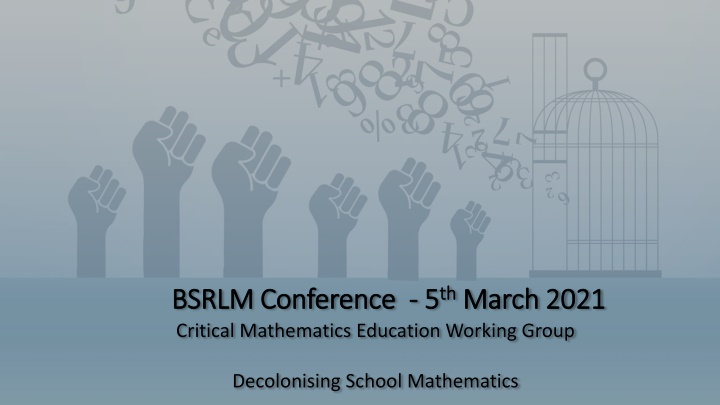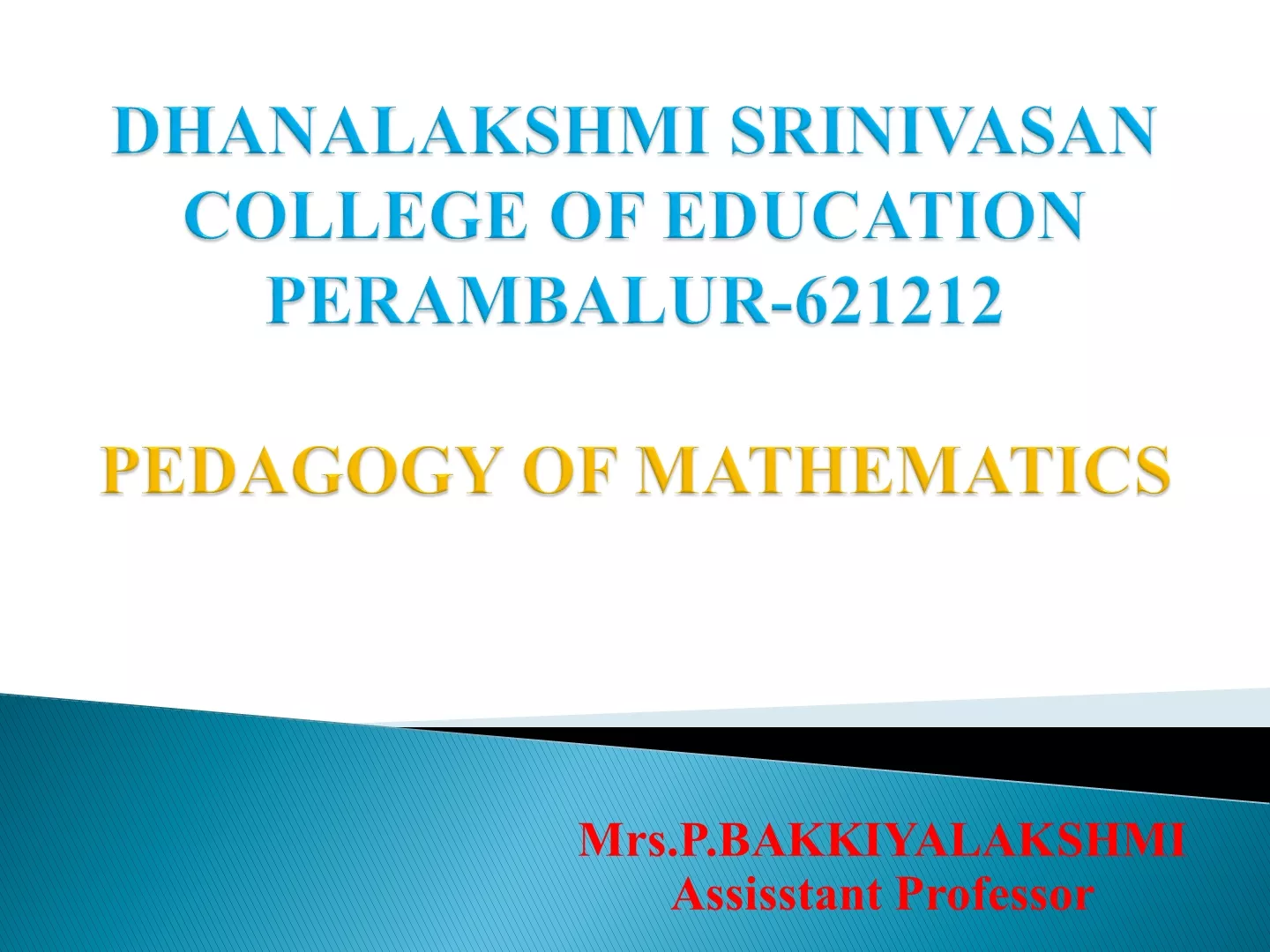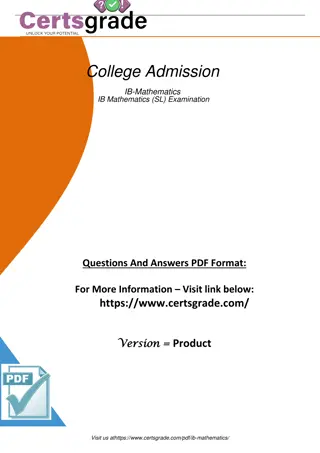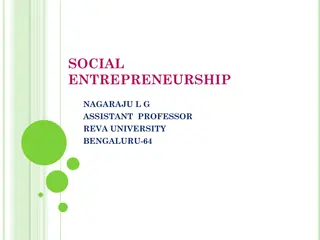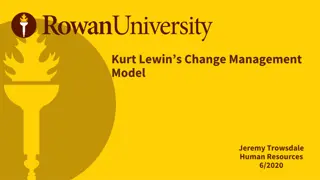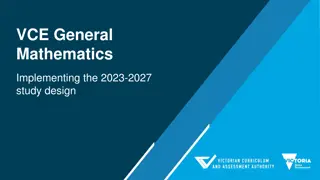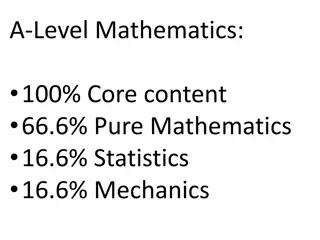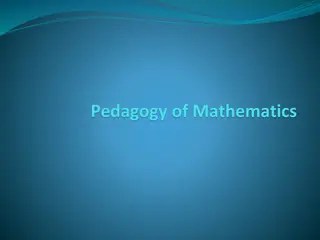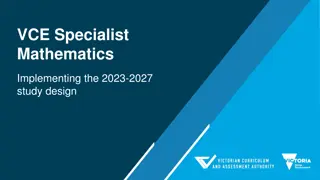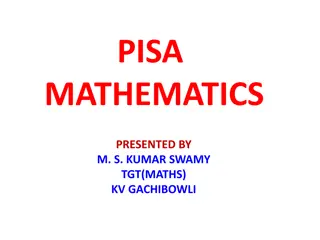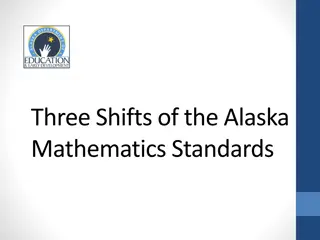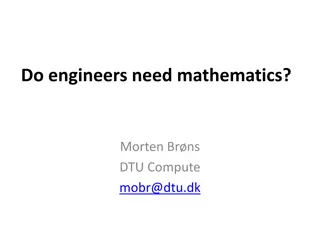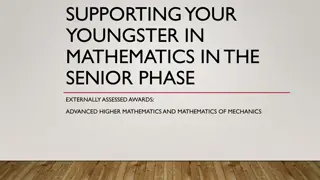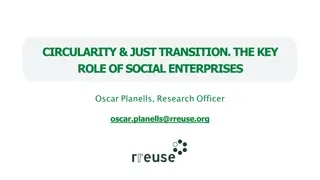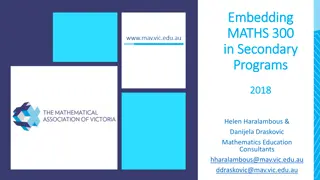Promoting Critical Mathematics Education for Social Change
This content delves into the significance of Critical Mathematics Education (CME) in challenging societal inequities perpetuated through traditional mathematics education. By advocating for a more just and equitable society, CME seeks to empower individuals to understand and address social, political, and economic issues through a decolonized approach to school mathematics. Explore the evolution of mathematics, the impact of colonization on mathematical education, and the importance of acknowledging diverse cultural contributions to the field.
Download Presentation

Please find below an Image/Link to download the presentation.
The content on the website is provided AS IS for your information and personal use only. It may not be sold, licensed, or shared on other websites without obtaining consent from the author.If you encounter any issues during the download, it is possible that the publisher has removed the file from their server.
You are allowed to download the files provided on this website for personal or commercial use, subject to the condition that they are used lawfully. All files are the property of their respective owners.
The content on the website is provided AS IS for your information and personal use only. It may not be sold, licensed, or shared on other websites without obtaining consent from the author.
E N D
Presentation Transcript
BSRLM Conference BSRLM Conference - - 5 5th thMarch 2021 Critical Mathematics Education Working Group March 2021 Decolonising School Mathematics
BSRLM Conference BSRLM Conference 5 5th thMarch 2021 Critical Mathematics Education Working Group Critical Mathematics Education Working Group March 2021 Terms of reference: The CME Working Group (launched in November 2015) is open to all and aims to promote research that brings about positive social change through mathematics education. CME aims to identify and challenge ways in which mathematics is commonly used to maintain the status quo and reproduce inequities in society. It proposes an alternative and empowering conceptualisation of mathematics, which enables people to better understand their social, political and economic situations, and to advocate and bring about changes leading to a more just and equitable society.
Decolonising school mathematics Decolonising school mathematics Decolonisation of school mathematics cannot be a simple matter of addressing the level of content but a challenge which needs to be explored through the philosophy of mathematics education and the way maths is portrayed. Whilst historically, mainstream mathematics education does not have a tradition of critically examining issues of unequal economic, political and cultural power (Apple, 2000), mathematics is essentially a creative human endeavour which is growing, changing and fallible. It is bound within the cultural contexts and values of its makers (Ernest, 1991). This is an opportunity for researchers, educators and teachers to engage in discussion about starting points related to decolonising school mathematics.
Decolonising school mathematics Decolonising school mathematics A Western form of mathematics (with some influences from early Indian and Islamic civilisations), dominant in Europe in the 16th and 17th centuries, was imposed upon the rest of the world through the process of colonisation. D Ambrosio (2006)
Challenging the traditional history of maths Challenging the traditional history of maths Historians of mathematics are criticised, firstly, for ignoring, devaluing, distorting or marginalising the contributions of cultures outside Europe to that body of knowledge that is paradoxically referred to as Western mathematics. China, India, North Africa and the Arab World are recognised not only for their contribution to this mathematics but also in their own right as each having a mathematical history Marginal attention, if any at all, is paid to the history of mathematics in cultures that have not directly contributed to Western mathematics such as the American Indians (see for e.g. Closs, 1986) and sub-Saharan Africans (see for e.g. Zaslavsky, 1973; Gerdes, 1991a). Skovsmose & Vathal, 1997.
Ethical dimension of Mathematics Education It is impossible to accept the exclusion of large sectors of the population of the world, both in developed and undeveloped nations. An explanation for this perverse concept of civilization asks for a deep reflection on colonialism. Mathematics has everything to do with this state of the world. A new world order is urgently needed. Our hopes for the future depend on learning - critically - the lessons of the past. D'Ambrosio (2007)
Ethnomathematics in the curriculum To de-mystify a form of knowledge [mathematics] as being final, permanent, absolute, unique. There is a current misperception in societies, very damaging, that those who perform well in mathematics are more intelligent, indeed superior to others. This erroneous impression given by traditional mathematics teaching is easily extrapolated to religious, ideological, political, racial creeds; D'Ambrosio (2007)
Ethnomathematics in the curriculum To illustrate intellectual achievement of various civilizations, cultures, peoples, professions, gender. Mathematics is absolutely integrated with Western civilization, which conquered and dominated the entire world. The acceptance, forced or voluntary, of Western knowledge, behaviour and values, can not be associated with ideas like "the winner is the best, the losers are to be discarded". More than any other form of knowledge, mathematics is identified with winners. D'Ambrosio (2007)
Perseverance Perseverance- - NASA Mars Project Mars Project NASA Touchdown confirmed! Perseverance is safely on the surface of Mars, ready to begin seeking the signs of past life
Perseverance Perseverance- - NASA Mars Project Mars Project Touchdown confirmed! Perseverance is safely on the surface of Mars, ready to begin seeking the signs of past life NASA Dr Swati Mohan Who is generating new mathematics? Powerful knowledge?
Decolonising school mathematics Decolonising school mathematics - - Discussion Discussion To approach mathematics education as a culture and value laden subject. Refer to examples of the development on mathematics in India, China, pre- Columbian America and the Arab world, highlighting why these developments are important to refer to. Does decolonising school mathematics focus on background - is there a foreground? Touchdown confirmed! Perseverance is safely on the surface of Mars, ready to begin seeking the signs of past life (Dr Swati Mohan) Who is generating new mathematics? How can school mathematics redress the injustices caused by colonisation?
References References Skovsmose, O., & Vathal, R. (1997). The end of innocence: A critique of ethnomathematics . Educational Studies in Mathematics, 34, 131 158. Apple, M. (2000). Mathematics reform through conservative modernization? Standards, markets and inequality in education. In J. Boaler (Ed.) Multiple perspectives on mathematics teaching and learning, (pp. 243-259) Westport, CT: Ablex. D'Ambrosio, U. (2007) - Peace, Social Justice and Ethnomathematics. The Montana Mathematics Enthusiast, Monograph. Ernest, P. (1991a). The Philosophy of Mathematics Education, London: Falmer Press.
